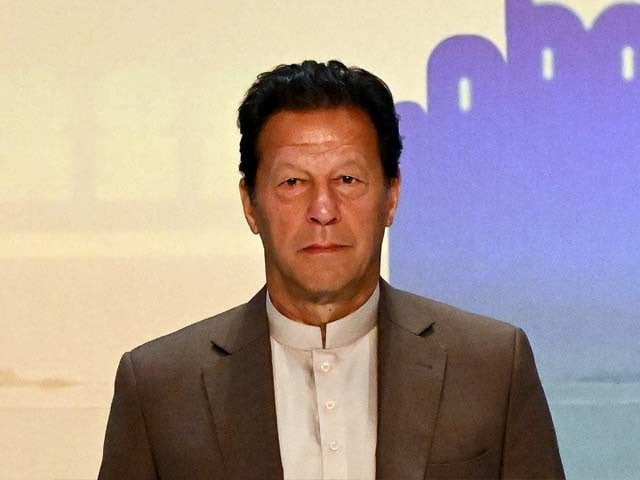PM seeks ‘out-of-box’ proposals on extending relief to people
Directs EAC to avoid proposals that may put more taxation burden on people

Prime Minister Imran Khan on Thursday directed the Economic Advisory Council (EAC) to avoid proposals that may put more taxation burden on people, as the much-trumpeted council skips an in-depth discussion on the International Monetary Fund programme.
The council held its first meeting under the chair of the premier but did not take up the issue whether there was a need to renegotiate the IMF deal.
It was expected that the body would take up the issue of “harsh” conditions of the IMF programme after newly-appointed Finance Minister Shaukat Tarin had spoken against it.
Instead of imposing more taxes, the EAC should find out-of-the-box solutions to give relief to the people, said Prime Minister Imran Khan while addressing the council members, according to a statement issued by the PM’s Office.
Under the IMF deal, Pakistan has committed to slap additional income and sales taxes equal to 1.2% of GDP or Rs570 billion in the new budget.
It will have to be seen how the EAC members can help to escape these commitments when the forum is not taken into confidence on the IMF programme.
Sources said that PM Imran had advised the EAC members to give recommendations within the IMF framework.
The prime minister further directed the EAC to prepare short, medium and long-term economic roadmap in the areas of energy, construction, agriculture, tourism, social sector subsidies, price stability, small and medium enterprises, foreign remittances and public private partnership.
He reconstituted the council early this month to assist his economic team in making the economic policies. However, a similar body had also been established a year ago with the name of Policy Think Tank, which was also housed in the Ministry of Finance.
At least four EAC members, Shaukat Tarin, Sultan Alana, Dr Ijaz Nabi and Arif Habib were also the members of the think tank.
In July last year, PM Imran had approved over 60 recommendations of the Policy Think Tank to tap the potential of neglected sectors of the economy by lowering regulatory restrictions and digitizing the economy.
The fate of these 60 recommendations was not known. Bankers, present at the think tank, had pushed for reducing the statutory liquidity ratio (SLR) – the money that the banks had to keep in reserve before lending to clients, arguing that this would spare hundreds of billions of rupees for lending to the housing and small and medium enterprises (SMEs).
The Policy Think Tank had also given proposals for enhancing the temporary relief facilities, expanding lending to small and medium enterprises (SMEs) and enabling demand growth through expansion of consumer lending and encouraging housing finance.
A finance ministry handout stated that finance minister Tarin emphasized the importance of evolving consensus on macro-economic stabilization measures and reform agenda for an inclusive and sustained economic growth after taking all stakeholders on board.
The EAC will follow a consultative process and suggest policy initiatives to optimize and further strengthen the financial and economic policies aimed at enhancing public welfare, according to the ministry.
The finance minister established sub-groups and assigned areas for further deliberation and directed to firm-up proposals after seeking input from the all concerned.
He emphasized to present short, medium and long-term plans with respective timelines for an effective way forward. The EAC will meet frequently and members would present recommendations before the committee for detailed discussion.
Some of the members emphasized the need to make the forum productive and meaningful as all such bodies in the past had been rendered to just debating club.
The private members of the EAC also gave their input regarding strengthening blue economy, need for road-to-market infrastructure development, import substitution, mechanized farming, gender-sensitive employment initiatives, harmonising tax and tariff structures, climate change, SMEs, and streamlining circular debt and other power-related issues.
The finance minister stressed active participation of key stakeholders in evolving consensus for sound economic planning and underscored importance of provincial participation in concerned areas for working out holistic solutions to the current economic problems.
He hoped that collective decision-making would help in putting an end to repeated boom-and-bust cycles which played havoc with the national economy over the years.



















COMMENTS
Comments are moderated and generally will be posted if they are on-topic and not abusive.
For more information, please see our Comments FAQ